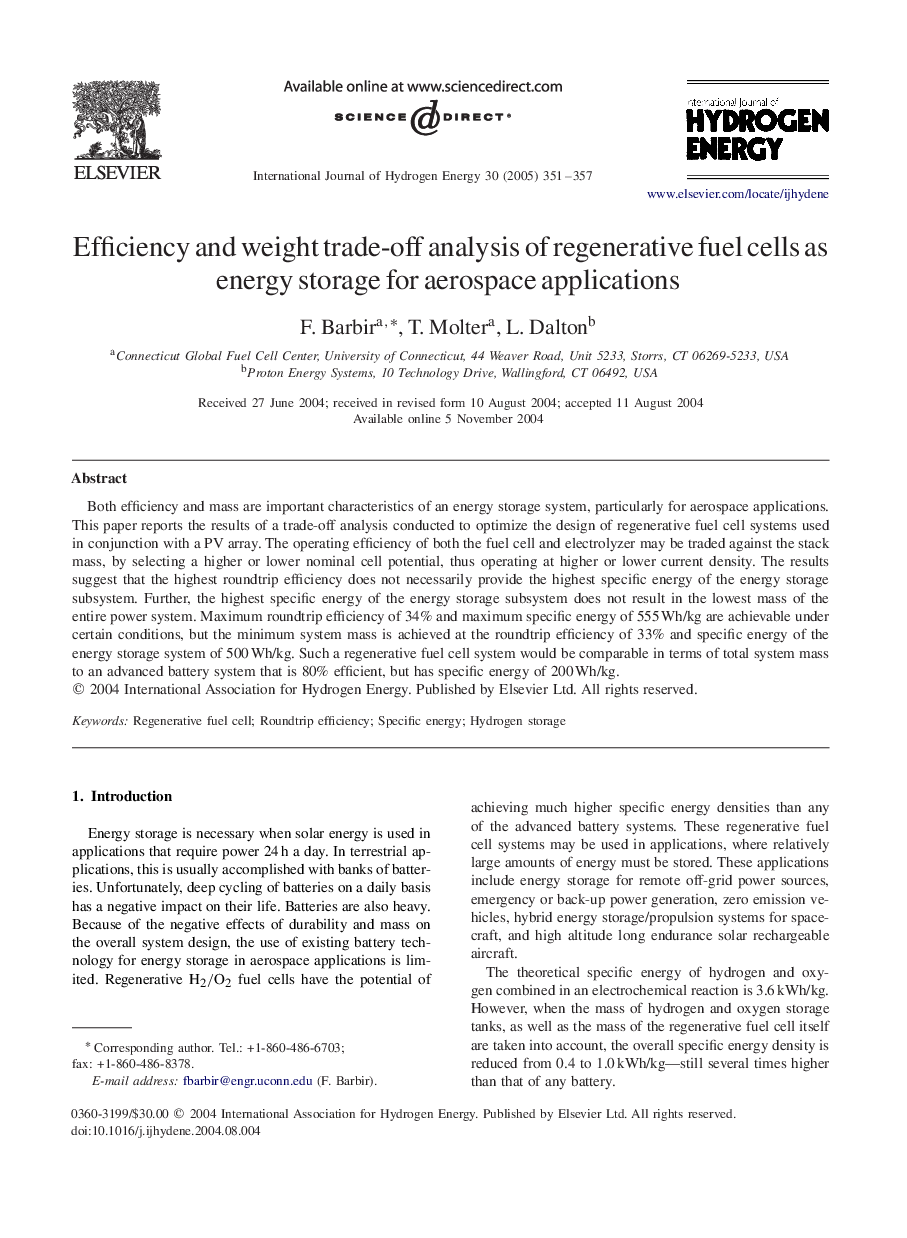| Article ID | Journal | Published Year | Pages | File Type |
|---|---|---|---|---|
| 9759332 | International Journal of Hydrogen Energy | 2005 | 7 Pages |
Abstract
Both efficiency and mass are important characteristics of an energy storage system, particularly for aerospace applications. This paper reports the results of a trade-off analysis conducted to optimize the design of regenerative fuel cell systems used in conjunction with a PV array. The operating efficiency of both the fuel cell and electrolyzer may be traded against the stack mass, by selecting a higher or lower nominal cell potential, thus operating at higher or lower current density. The results suggest that the highest roundtrip efficiency does not necessarily provide the highest specific energy of the energy storage subsystem. Further, the highest specific energy of the energy storage subsystem does not result in the lowest mass of the entire power system. Maximum roundtrip efficiency of 34% and maximum specific energy of 555Â Wh/kg are achievable under certain conditions, but the minimum system mass is achieved at the roundtrip efficiency of 33% and specific energy of the energy storage system of 500Â Wh/kg. Such a regenerative fuel cell system would be comparable in terms of total system mass to an advanced battery system that is 80% efficient, but has specific energy of 200Â Wh/kg.
Related Topics
Physical Sciences and Engineering
Chemistry
Electrochemistry
Authors
F. Barbir, T. Molter, L. Dalton,
